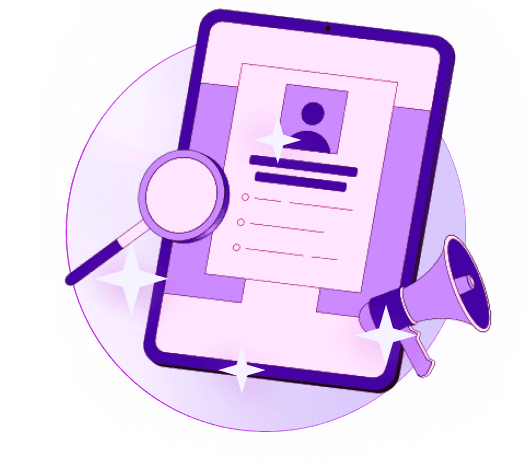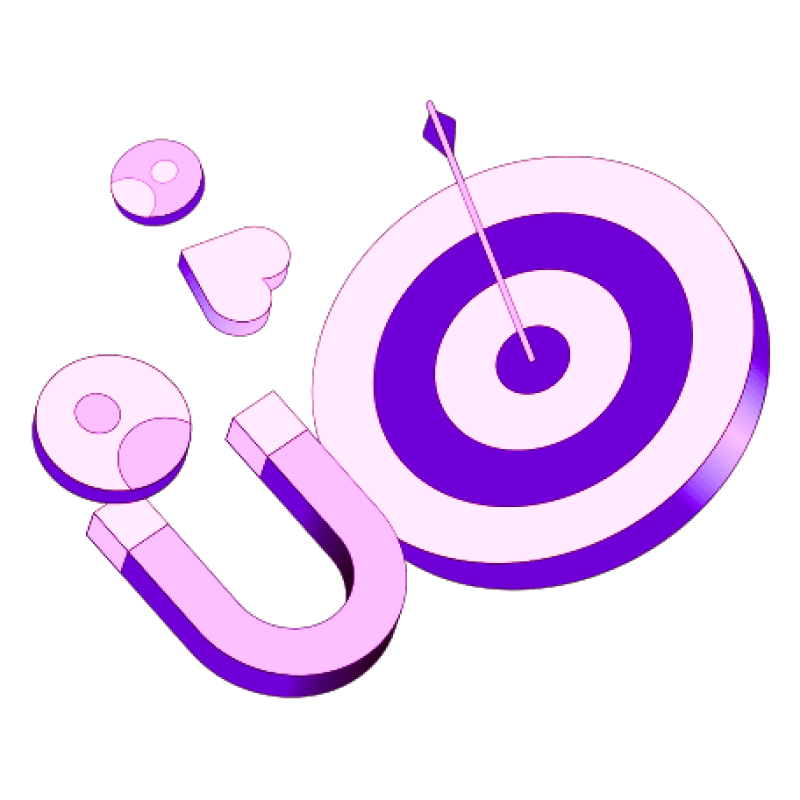Blogs
Articles

AI Sales Pipeline Management: How to Optimize Your Sales Process
A surprising 74% of marketing professionals and 43% of sales professionals already use AI sales pipeline management in their roles.
The AI revolution isn't approaching - it's here now. Teams that perform well are 1.5 times more likely to use AI tools for pipeline management and achieve 30% more deal closures.
Artificial intelligence continues to revolutionize pipeline management in sales. Companies are rushing to adopt these solutions as the global AI sales market heads toward $1.4 billion by 2025, with a 22.5% CAGR.
AI-powered CRM sales pipeline management can spot patterns in big datasets that humans might miss. Companies that use automated follow-up systems see their conversion rates jump by 20-30% compared to manual processes.
Let's explore how AI revolutionizes sales pipeline management through better forecasting and up-to-the-minute visibility. You'll learn practical steps to implement AI in your sales process and keep up with trends in this competitive digital world.
What is AI Sales Pipeline Management?
Sales pipeline management tracks and oversees prospects through different stages of your sales process. AI makes this vital sales function work better and more efficiently.
AI sales pipeline management uses machine learning, natural language processing, and predictive analytics to learn about large volumes of data, spot patterns, and give valuable insights into your sales processes. Traditional pipeline management just tracks deals. AI takes it further by identifying opportunities that need attention and suggesting specific actions to move deals forward.
How AI fits into CRM and pipeline management
AI and CRM systems work together to create an informed approach to customer interactions that helps both businesses and consumers. AI-powered CRM helps organizations streamline processes by organizing and managing customer information better.
AI's predictive capabilities improve workflow and create more personalized communications. Companies that use AI/ML capabilities see better core business metrics. Their revenue grows, operations become more efficient, and risks decrease.
AI changes CRM pipeline management by:
Delivering immediate sales performance information for quick, informed decisions
Using historical data to evaluate and prioritize leads most likely to convert
Finding pipeline bottlenecks and offering solutions to make the sales process better
Looking at customer data to predict needs and priorities for personalized interactions
Sales pipeline vs sales funnel: key differences
People often mix up sales pipelines and funnels, but they show different parts of the sales process. The main difference lies in their point of view: sales pipelines focus on your team's activities and deal progress, while sales funnels show the buyer's trip from awareness to purchase.
Sales representatives use pipelines to track their progress, while funnels show where prospects are in their buying process. Pipelines focus on activities and value, but funnels concentrate on performance and quotas.
Your sales team's steps shape the sales pipeline. The sales funnel reflects what potential buyers do and might do next.
This difference plays a significant role in setting up AI sales pipeline management. It helps determine which metrics to track and how to understand AI-generated information.
Key Benefits of Using AI in Pipeline Management
The numbers tell a clear story about how AI affects sales pipeline management. Only 7% of sales teams hit a forecast accuracy of 90% or more. Companies that use AI see remarkable improvements in several areas.
Improved forecasting accuracy with AI
AI brings precision where gut feelings once ruled. Sales teams reduce their forecasting workload and get better accuracy rates with AI-enhanced forecasting. Studies show that companies using AI for sales forecasting see a 10-15% jump in accuracy. This happens because AI looks at huge amounts of past data and current information to predict outcomes better than humans can. A telling fact: 83% of sales teams with AI grew their revenue last year, while only 66% of non-AI teams did the same.
Real-time pipeline visibility and updates
AI-powered pipeline management shows deal status and performance gaps right away without manual report running. Sales teams spot problems early and quickly adjust to market changes. AI processes information instantly, which helps teams make smart decisions and react to trends faster than old methods. This leads to shorter sales cycles and better conversion rates.
Better lead prioritization and scoring
Here's a powerful stat: 98% of sales teams say AI helps them prioritize leads better. AI looks at demographic, firmographic, and behavioral data to rank prospects instantly. Sales representatives can focus on the most promising opportunities. AI lead qualification cuts lead servicing time by 31%. The system scores leads automatically based on set criteria. Teams waste less time on weak prospects and convert more leads.
Scalability for growing sales teams
AI solutions handle big data loads smoothly. This makes them perfect for companies that want to grow their sales operations. The technology adapts to new information and market changes. Performance stays strong as businesses expand. AI helps companies react to market shifts and customer behaviors instantly. This creates a lasting competitive edge as sales teams grow.
How to Implement AI in Your Sales Pipeline
AI implementation in your sales pipeline needs a smart strategsales pipeline needs a smart strategyy beyond just using new technology. Here's how you can make this change work well.
Define your pipeline goals and KPIs
Clear objectives are the foundations of successful AI implementation. Your metrics should focus on elements that affect revenue growth directly - deal progression, lead scores, and conversion rates. AI-powered KPIs can become a source of competitive advantage. Pick what matters most to your goals: better customer retention, higher conversion rates, or increased customer lifetime value.
Ensure clean and structured sales data
AI requires reliable and consistent data to give meaningful sales insights. Organizations lose an average of $12.90 million yearly due to poor data quality. Start by:
Setting up automated data capture for sales conversations
Using AI-powered data validation to keep consistency
Creating standardized data entry processes
Running regular data audits
Choose the right AI sales forecasting software
Pick platforms that blend with your existing sales tech stack. Your ideal solution should have features like predictive analytics, live insights, and sentiment analysis to track KPIs well. Companies using AI in their CRM see better forecast accuracy.
Train and test your AI models
A small pilot project should test your AI models before full rollout. This helps you spot problems early and improve your approach. Your system needs at least 12 months of sales data to analyze and draw reliable insights.
Monitor and refine your AI pipeline strategy
AI adoption needs ongoing attention. Track key metrics through dashboards, and keep checking effectiveness by comparing current performance metrics to your baselines. Companies that update their KPIs with AI are three times more likely to see better financial results.
Want to reshape your sales process with AI? Check out Persana for state-of-the-art AI tools that blend naturally with your CRM.
Top Tools and Models for AI Sales Pipeline Management
Choosing the right AI sales pipeline management tools will reshape your forecasting accuracy. Research shows that Multi-Layer Perceptron (MLP) delivers better accuracy than traditional time-series models and achieves the lowest Root Mean Square Error and Mean Absolute Error values.
Overview of AI sales pipeline management tools
Top platforms like Salesforce Einstein boost win rates by 10% with AI-predictions. HubSpot Sales Hub comes with predictive lead scoring, while InsightSquared delivers 350 ready-to-use reports for pipeline analytics. Forecastio stands out with its AI-powered sales forecasting that creates automated weighted pipeline projections automatically.
Popular AI models: regression, neural networks, SVMs
Regression analysis helps companies learn about how price and marketing affect their sales. Neural networks, particularly LSTM (Long Short Term Memory), stand out in sales forecasting with a low 7.07% Mean Absolute Percentage Error compared to other architectures. Support Vector Machines (SVMs) have boosted salespeople's performance prediction accuracy by over 10% compared to baseline systems.
Integrating AI with your CRM system
Companies can now choose from several options like IBM watsonx Assistant, Salesforce Einstein GPT, HubSpot ChatSpot, and Zoho CRM (Zia). These systems automate data entry and deliver up-to-the-minute data analysis.
Automated sales pipeline features to look for
AI tools need lead scoring, deal risk detection, and pipeline visualization that updates instantly to work well.
Check out Persana to explore AI sales tools with these capabilities.
Conclusion
AI sales pipeline management has emerged as a game-changer for modern sales teams. This piece shows how AI reshapes traditional sales processes through informed analysis and simplified processes. Sales professionals now know how to forecast outcomes, prioritize opportunities, and scale operations better.
The numbers tell the story clearly - 74% of marketing professionals and 43% of sales professionals already use AI tools. Companies with these advanced technologies report 30% higher deal closure rates and better forecast accuracy. These results definitely show why the global AI in sales market keeps growing at an impressive 22.5% CAGR.
The sales scene has changed fundamentally. Companies using AI-powered pipeline management gain competitive edges through improved efficiency and effectiveness. When you want to improve conversion rates, boost customer retention, or increase lifetime value, AI tools provide the insights and automation needed.
Take a look at your current sales pipeline processes and find areas where AI can make meaningful improvements. The transition might seem tough at first. The rewards - faster sales cycles, higher conversion rates, and improved revenue growth - make it worth the effort.
Key Takeaways
AI is revolutionizing sales pipeline management, with companies using these tools seeing 30% higher deal closure rates and significant improvements in forecasting accuracy.
• AI dramatically improves sales performance: Teams using AI are 1.5x more likely to be high-performing, with 83% experiencing revenue growth compared to 66% without AI.
• Data quality is critical for AI success: Poor data costs organizations $12.90 million annually, making clean, structured sales data essential for meaningful AI insights.
• Strategic implementation beats random adoption: Define clear KPIs, pilot test models, and continuously monitor performance rather than blindly implementing new technology.
• Real-time insights drive faster decisions: AI provides instant pipeline visibility and automated lead scoring, reducing lead servicing time by 31% while improving prioritization.
• Forecasting accuracy jumps significantly: AI-augmented forecasting increases accuracy by 10-15%, with neural networks achieving just 7.07% error rates in sales predictions.

Create Your Free Persana Account Today
Join 5000+ GTM leaders who are using Persana for their outbound needs.
How Persana increases your sales results
One of the most effective ways to ensure sales cycle consistency is by using AI-driven automation. A solution like Persana, and its AI SDR - Nia, helps you streamline significant parts of your sales process, including prospecting, outreach personalization, and follow-up.



